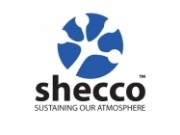After having announced the first 5 case studies to be presented at ATMOsphere Europe 2011 some days ago, we would like to announce the next technology case study presentations. With new applications for natural refrigerants, such as data center cooling with hydrocarbons and CO2, as well as a presentation of an innovative CO2 adsorption system or the experiences with large NH3 ammonia heat pumps, the technology sessions at ATMOsphere Europe will cover a broad range of applications.
Raphael Gerber, Frigo-Consulting: Innovative waste heat recovery with combined adsorption and transcritical CO2 refrigeration unit: Transcritical CO2 refrigeration systems release considerable amounts of high temperature waste heat depending on their operating conditions. This heat is normally used for floor heating in winter and released to ambient during summer. With a pioneering design the waste heat is now used to drive an adsorption chiller in summer that generates additional cooling and thus supports the CO2 refrigeration unit. The overall efficiency of the CO2 transcritical system is raised by cooling the refrigerant additionally after the gas cooler on the one hand and on the other hand by lowering the high pressure. The two systems can very well be combined because of their demand and supply characteristics, as high ambient temperatures lead to high waste heat in the refrigeration system and this is when additional cooling from the adsorption chiller is especially effective. It is expected that this combination will lead to yearly energy savings of the refrigeration unit of around 8%.
Asbjørn Leth Vonsild, Danfoss: Energy consumption of second generation CO2 refrigeration system: The case study presents results from a 1 year test period from a transcritical booster system installed in the Danish supermarket chain, Fakta. The chain owned by Coop Denmark has experienced significant savings in their energy consumption with their second generation transcritical booster system. It has now been documented that you can save energy with a transcritical booster system with gas by pass. Measurements indicate up to 10% energy savings compared to conventional HFC – systems. The results also show a technology improvement since 2007 where the first generation transcritical system was installed.
Rob Lamb, Star Refrigeration: NH3 large heat pump at Nestle factory: This case study presents results from high pressure heat pump solution using ammonia and screw compressors up to 90°C for reducing the Nestle Halifax factories refrigeration and heating energy demands. This enabled Star to comfortably take heat from the 0°C process glycol at -5°C and lift it to 60°C in one stage for heating. Nestle can save an estimated £143,000pa in heating costs, and 119,100kg in carbon emissions by using a Star Neatpump. Despite the new refrigeration plant providing both heating and cooling, it consumes £120,000 less electricity per annum than the previous cooling only plant.
Christian Heerup, DTI: Server room heat recovery and free cooling with CO2 and propane: Free cooling is a possible solution when the temperature for the cooling load is above the outdoor temperature. To increase efficiency on a yearly basis, the objective is to raise the temperature level at which free cooling can be applied in order to achieve more hours of free cooling operation. By supplementing the traditional glycol based free cooling system with a CO2 based system, the benefits of phase transition and an increased heat transfer coefficient are utilized and the temperature limit is raised, lowering the annual energy consumption. To further reduce operating costs the heat is recovered from the server room and the canteen refrigeration system by the use of heat pumps. Calculations show a significant reduction in the energy consumption. For a climate as the Danish, energy consumption is expected to be reduced by 35% compared to the glycol free cooling system alone. The systems are monitored with individual energy meters and this study reports efficiencies as well as experiences from one year of operation.
